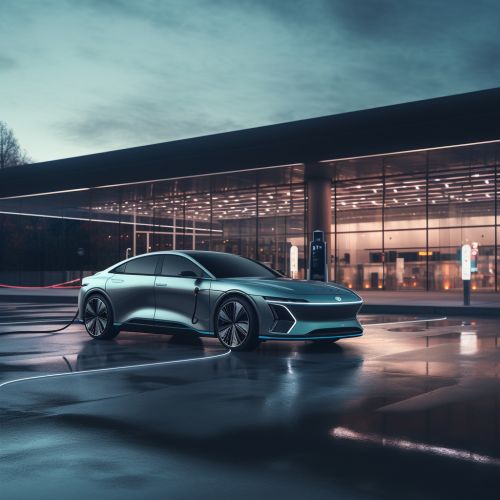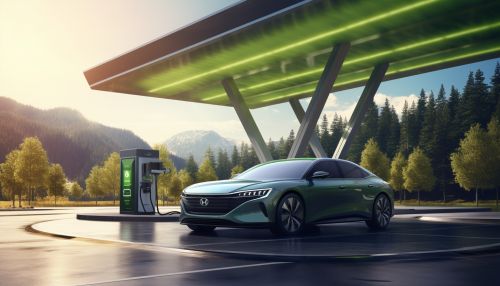Hydrogen Economy and Fuel Cell Technology
Introduction
The Hydrogen Economy is a proposed system of delivering energy using hydrogen (H2). The term hydrogen economy was coined by John Bockris during a talk he gave in 1970 at General Motors (GM) Technical Center. The concept was proposed as a way to solve major problems caused by the use of fossil fuels for energy. Hydrogen can be used as a fuel and is an energy carrier that can store and deliver energy in a usable form. The hydrogen economy is currently being created and there are many problems that need to be solved to make it work.
Fuel Cell Technology is a key component of the hydrogen economy. Fuel cells are devices that convert chemical potential energy (energy stored in molecular bonds) into electrical energy. A fuel cell does this by combining hydrogen and oxygen into water, and in the process, it produces electricity.
Hydrogen Economy
The hydrogen economy is a proposed system of delivering energy using hydrogen. The concept was proposed as a way to solve major problems caused by the use of fossil fuels for energy. Hydrogen can be used as a fuel and is an energy carrier that can store and deliver energy in a usable form. The hydrogen economy is currently being created and there are many problems that need to be solved to make it work.


Production of Hydrogen
Hydrogen is the most abundant element in the universe, but it is not naturally occurring on Earth in its elemental form. It must be produced from compounds that contain it. There are several methods to produce hydrogen, including steam reforming, electrolysis, and thermochemical cycles.
Storage and Distribution
Once hydrogen has been produced, it must be stored and distributed to where it will be used. This is one of the major challenges in the hydrogen economy. Hydrogen is the lightest element, and it is difficult to store and transport. There are several methods for storing hydrogen, including high-pressure tanks, low-temperature liquid hydrogen, metal hydrides, and chemical compounds that release hydrogen upon heating.
Use of Hydrogen
Hydrogen can be used in a variety of applications. It can be used in internal combustion engines, which are similar to the engines currently used in most cars. It can also be used in fuel cells to produce electricity, which can then be used to power electric motors. In addition, hydrogen can be used in a variety of industrial processes, including the production of ammonia and the refining of metals.
Fuel Cell Technology
Fuel cells are devices that convert chemical potential energy (energy stored in molecular bonds) into electrical energy. A fuel cell does this by combining hydrogen and oxygen into water, and in the process, it produces electricity.
Types of Fuel Cells
There are several types of fuel cells, including proton exchange membrane fuel cells (PEMFCs), solid oxide fuel cells (SOFCs), and molten carbonate fuel cells (MCFCs). Each type of fuel cell has its own advantages and disadvantages, and they are suited to different applications.
Fuel Cell Components and Function
A fuel cell consists of two electrodes, the anode and the cathode, separated by an electrolyte. Hydrogen is fed into the anode, and oxygen (from the air) is fed into the cathode. At the anode, the hydrogen molecules are split into protons and electrons. The protons pass through the electrolyte to the cathode, while the electrons are forced to travel through an external circuit, creating an electric current.
Fuel Cell Applications
Fuel cells can be used in a variety of applications, including transportation, stationary power generation, and portable power applications. Fuel cells are very efficient, and they produce no harmful emissions when they operate.
Challenges and Future Prospects
While the hydrogen economy and fuel cell technology hold great promise, there are still many challenges that need to be overcome. These include the production, storage, and distribution of hydrogen, as well as the cost and durability of fuel cells. However, with continued research and development, it is hoped that these challenges can be overcome, and the hydrogen economy can become a reality.
